Artificial Intelligence is becoming a big part of how businesses do marketing today, and it is not just for big companies anymore. By 2026, small businesses will increasingly depend on AI tools to maximize efficiency. Whether it is creating content, running ads, or being active on social media, AI is making marketing faster, smarter, and more cost-effective.
For small business owners who are doing multiple tasks at one time, these tools can be lifesavers. They take care of time-consuming tasks and help you focus on growing your business. This is where AI tools for digital marketing come in handy, especially ones that are easy to use and do not break the bank.
In this post, we are going to take a look at some of the best AI marketing tools that are available right now – both paid and free. These tools are designed with small businesses in mind and can help you automate tasks, reach the right people, and improve your overall marketing without the need for a large team or budget.
Table of Contents
Why Small Businesses Should Use AI Marketing Tools
Running a small business in 2026 means working smarter, not harder, and that’s where AI marketing tools come in. These tools are no longer just for big brands, but are accessible, affordable, and extremely powerful for small businesses as well.
Benefits of Using AI in Marketing
1. Cost-Efficiency
Artificial intelligence-enabled platforms automate tasks like scheduling social media posts, improving ads, or evaluating potential customers, reducing the need for large teams. This frees up time and money for small businesses to focus on growing.
2. Automation at Scale
Marketing automation with AI helps small businesses easily manage entire campaigns without the need for multiple software or manual work. It makes everything from personalized emails to real-time analysis easier.
3. Hyper-Personalization
Using AI tools in digital marketing, content, ads, and emails are tailored to a specific audience based on user behavior and data. This increases engagement and sales without any extra effort.
How AI Levels the Playing Field for Small Businesses
Big brands have the budget and manpower advantage. But small businesses equipped with smart AI marketing tools can match this efficiency using:
- Predictive analytics to anticipate customer needs
- Chatbots to provide 24/7 customer support
- Smart content creation to maintain a consistent online presence
This technology-powered adaptability allows them to swiftly respond to market shifts, personalize marketing campaigns on a large scale, and maximize return on investment without incurring significant overhead costs.
Some Real-World Use Cases
Here’s how small businesses are using AI tools for digital marketing in 2026:
- Content creation: Tools like Jasper or Copy.ai help businesses quickly create blogs, social posts, and ad copy.
- Campaign analytics: AI tools like Adzooma or Surfer SEO track real-time campaign data to figure out what’s working.
- Email marketing: Platforms like MailChimp and Brevo now offer AI-powered automation for segmentation, subject line optimization, and send-time predictions.
- Customer segmentation: AI tools analyze behavioral and demographic data to group audiences more effectively, leading to higher conversion rates.
According to Deloitte Digital’s Marketing Trends for 2025, nearly 70% of brands are actively investing in generative AI and personalization strategies, reflecting the growing use of AI in marketing for both large and small organizations.
13 Best AI Marketing Tools in 2026 (Paid & Free)
Do you want to save time and boost your marketing in 2026? These 13 best AI marketing tools, from content and SEO to social media, video, email, and ads, are built to help small businesses automate smarter and grow faster. Each tool below is selected based on usability, user feedback, and recent industry trends.
1. Jasper AI
- Type: Paid (Free trial available)
- Use Case: Content marketing & copywriting
- Key Features:
- Long-form blog writing
- Brand voice memory
- 30+ content templates
- Pros: Great for scaling blog and ad copy
- Cons: Steeper learning curve
- Pricing: Starts at $49/month
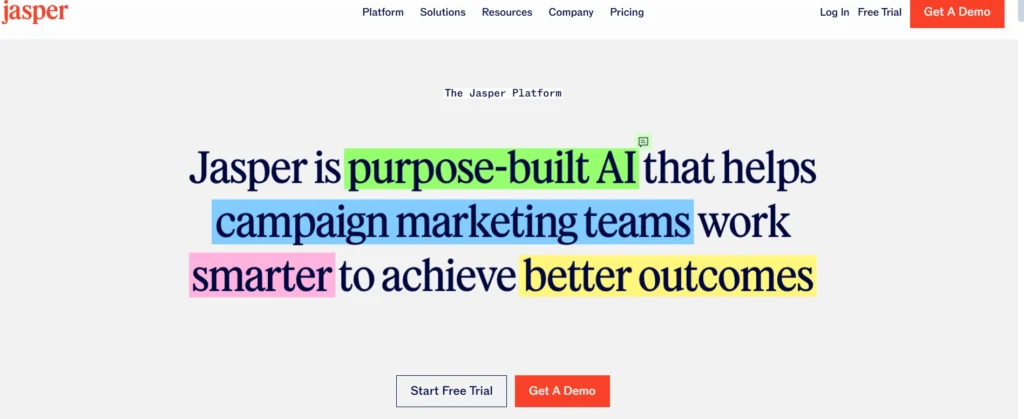
Why It’s Great: Jasper uses GPT-4-backed AI to create high-converting content with context. Ideal for small businesses running lean marketing teams.
2. Copy.ai
- Type: Freemium
- Use Case: Social media & email marketing
- Key Features:
- AI-driven email and social content
- Workflow automation
- Pros: Easy-to-use interface
- Cons: Limited customization in free plan
- Pricing: Free plan; Paid starts at $36/month
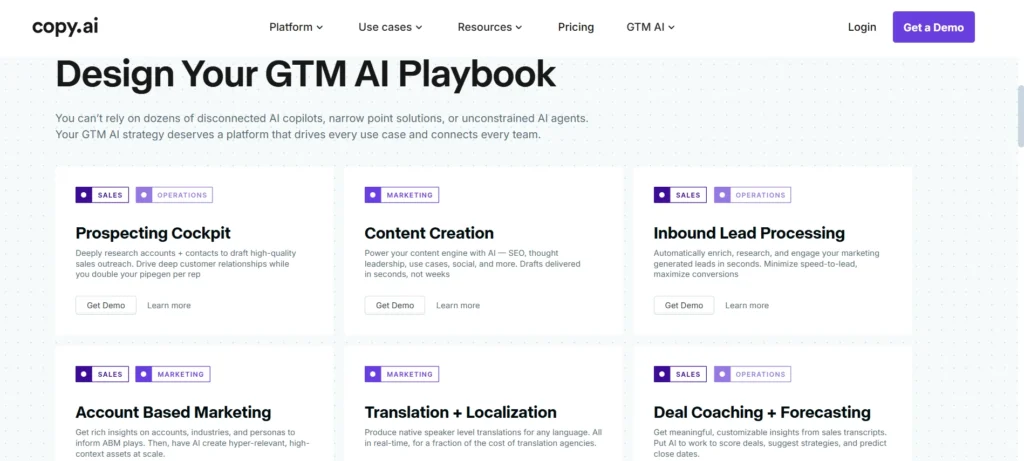
Why It’s Great: Perfect for daily content automation and personalized campaigns, especially for startups and solopreneurs.
3. Surfer SEO
- Type: Paid
- Use Case: SEO & content optimization
- Key Features:
- AI SEO audit tools
- SERP analyzer
- Pros: Helps boost Google rankings
- Cons: Best used alongside content tools like Jasper
- Pricing: From $89/month
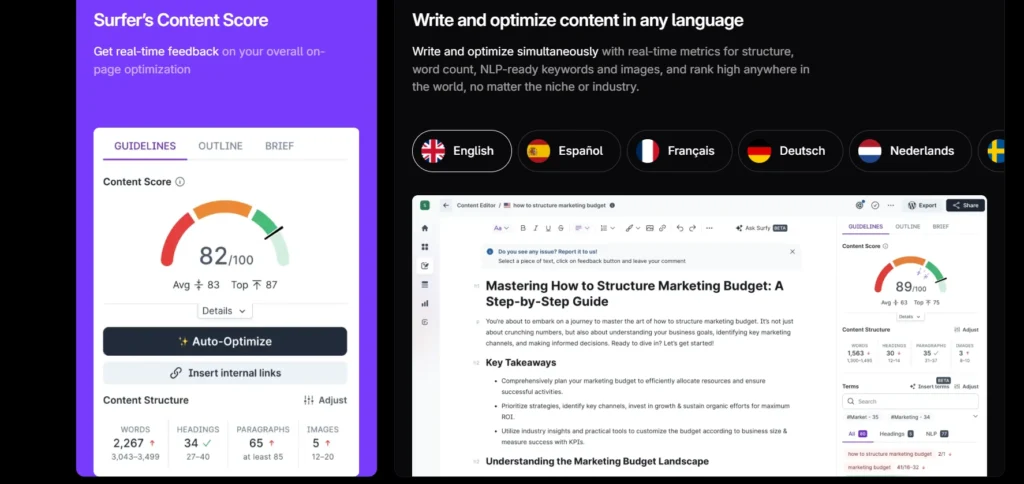
Why It’s Great: If SEO matters to your growth, Surfer ensures your content is keyword-rich and competitive.
4. Pictory
- Type: Freemium
- Use Case: Video marketing
- Key Features:
- Turn blogs into videos
- Subtitles & AI editing
- Pros: Beginner-friendly
- Cons: Limited templates in free tier
- Pricing: Free plan; Paid from $19/month
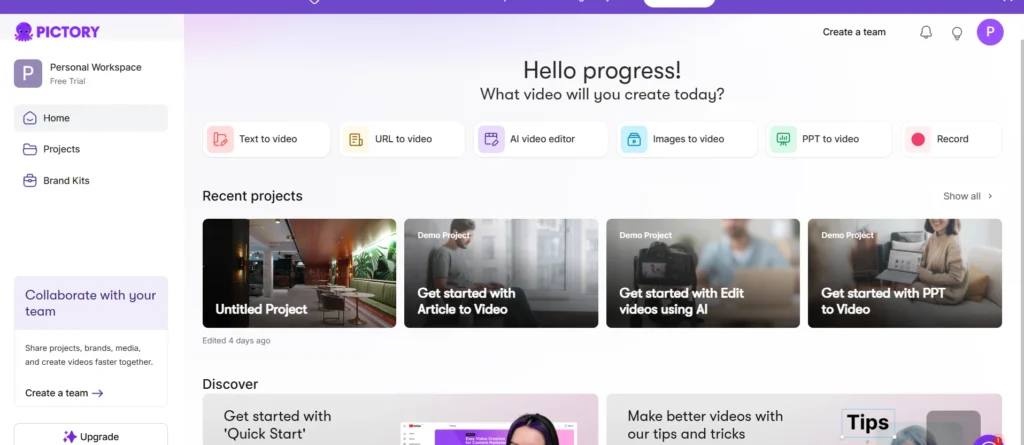
Why It’s Great: With video becoming a top content format in 2026, Pictory helps you repurpose and scale easily.
5. Grammarly
- Type: Paid
- Use Case: Content & communication
- Key Features:
- Tone detection
- Style guides for teams
- Pros: Excellent for teams writing professionally
- Cons: Limited creative suggestions
- Pricing: From $15/user/month
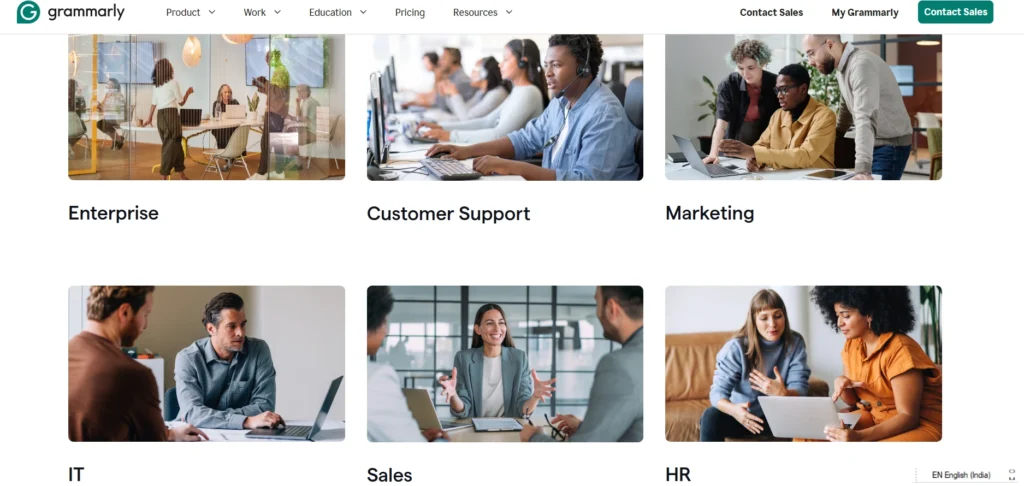
Why It’s Great: Helps maintain brand tone and consistency across your content and emails.
6. HubSpot Marketing Hub
- Type: Freemium
- Use Case: CRM + Marketing Automation
- Key Features:
- AI email workflows
- Smart content & lead scoring
- Pros: Unified sales + marketing system
- Cons: Advanced features require paid plan
- Pricing: Free; Paid from $15/month
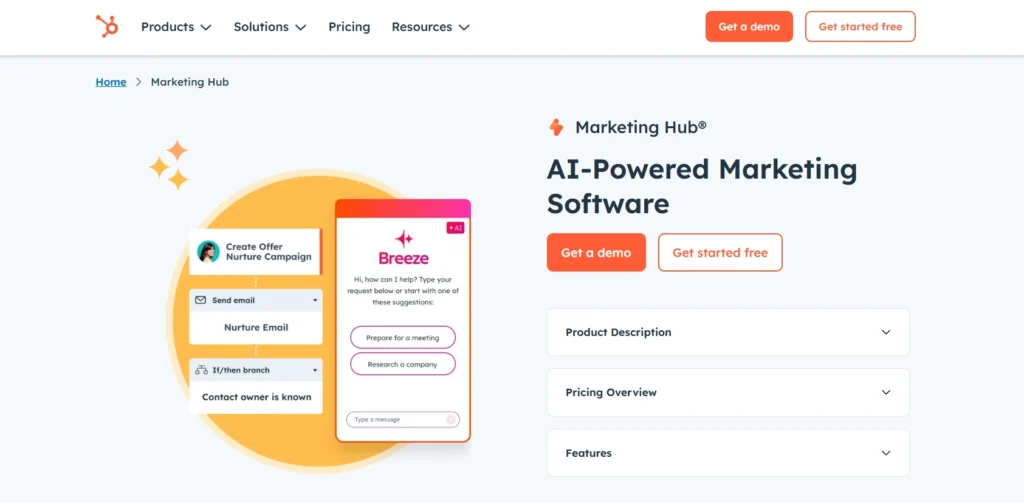
Why It’s Great: HubSpot remains a leader for scaling businesses that want an all-in-one growth solution.
7. Ocoya
- Type: Paid
- Use Case: Social media marketing
- Key Features:
- Content AI + scheduler
- E-commerce integrations
- Pros: Creative + planner in one
- Cons: Slightly buggy UI
- Pricing: Starts at $19/month
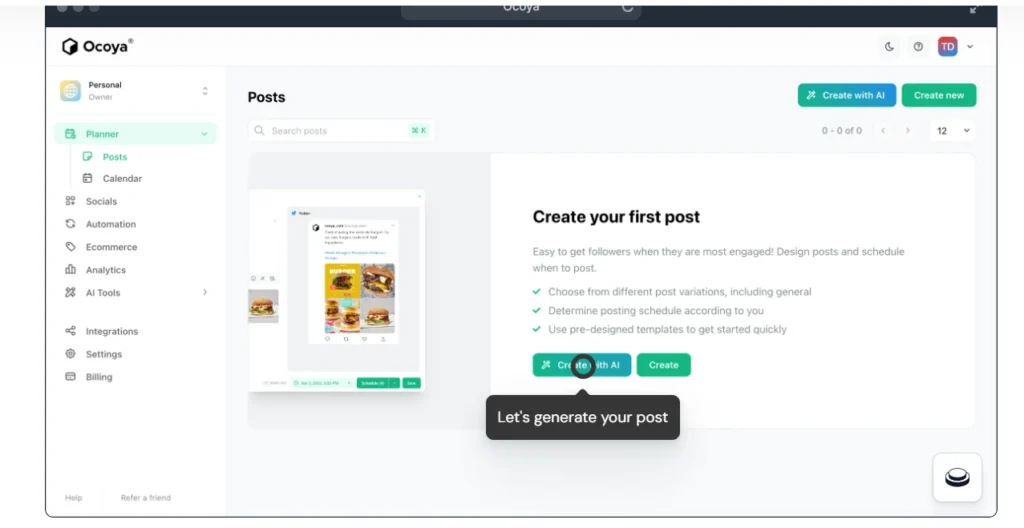
Why It’s Great: Combines Canva-like design with AI writing and scheduling. Efficient for busy small teams.
8. MarketMuse
- Type: Paid
- Use Case: SEO & content strategy
- Key Features:
- Topic modeling
- Content scoring
- Pros: Deep AI insights
- Cons: Expensive for small budgets
- Pricing: From $149/month
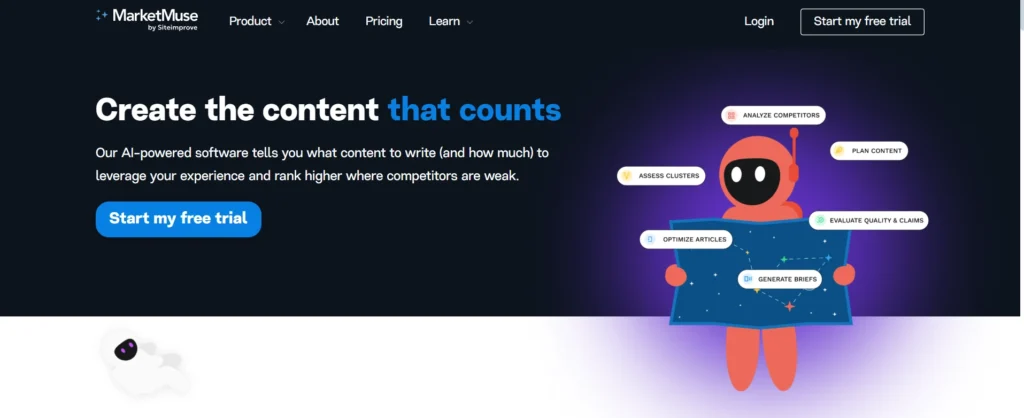
Why It’s Great: A serious tool for businesses focused on long-form, rank-worthy content.
9. Lumen5
- Type: Freemium
- Use Case: Video content marketing
- Key Features:
- Drag & drop video maker
- AI storyboard suggestions
- Pros: Fast to learn
- Cons: Branding locked behind paywall
- Pricing: Free; Paid starts at $29/month
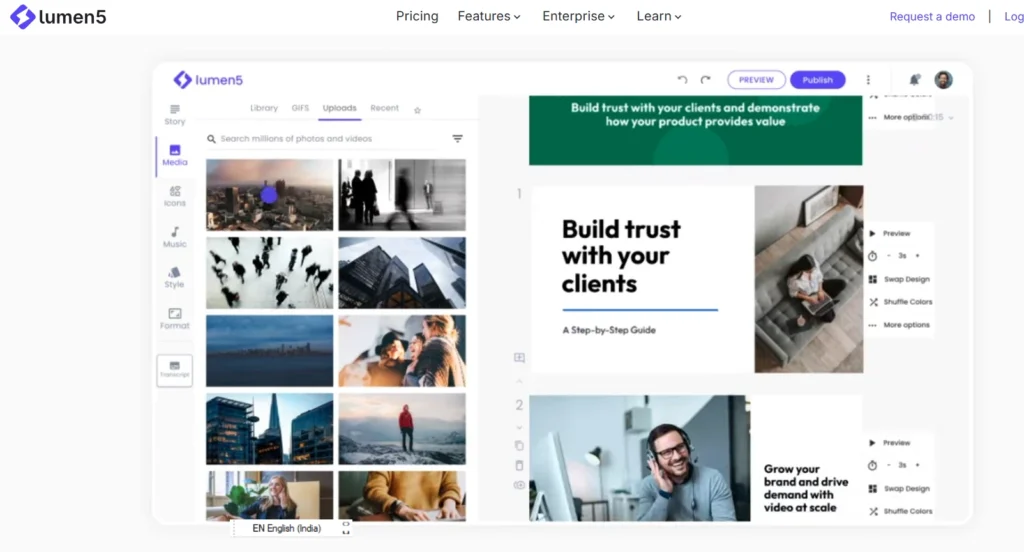
Why It’s Great: Makes social videos out of blog posts or scripts great for Instagram, LinkedIn, and YouTube.
10. Flick AI
- Type: Freemium
- Use Case: Social media automation
- Key Features:
- Caption writing AI
- Hashtag generator
- Pros: Excellent for Instagram & TikTok
- Cons: Instagram-focused
- Pricing: Free; Paid from $14/month
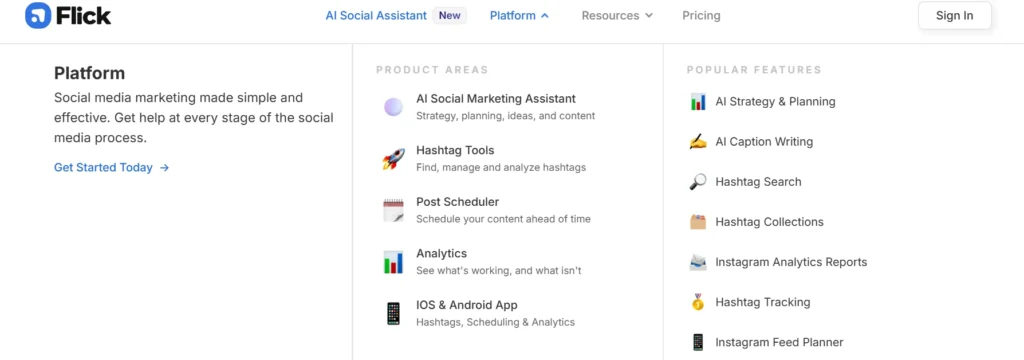
Why It’s Great: For creators and marketers looking to automate their brand’s social voice.
11. ManyChat
- Type: Freemium
- Use Case: Chatbot marketing
- Key Features:
- Messenger + Instagram bots
- Email/SMS integrations
- Pros: High engagement rate
- Cons: Complex setup for non-tech users
- Pricing: Free; Paid from $15/month
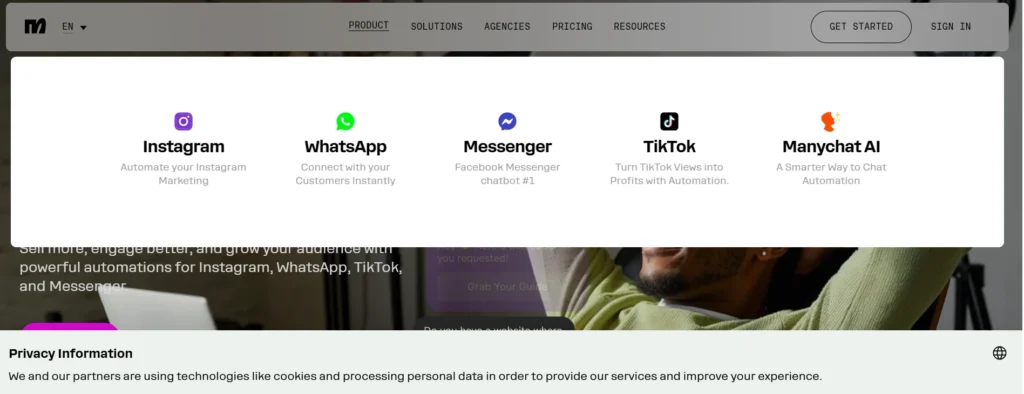
Why It’s Great: Automates lead generation and customer support through chat great for eCommerce.
12. Seventh Sense
- Type: Paid
- Use Case: Email marketing optimization
- Key Features:
- AI timing & engagement prediction
- Pros: Improves open/click rates
- Cons: HubSpot and Marketo only
- Pricing: From $80/month
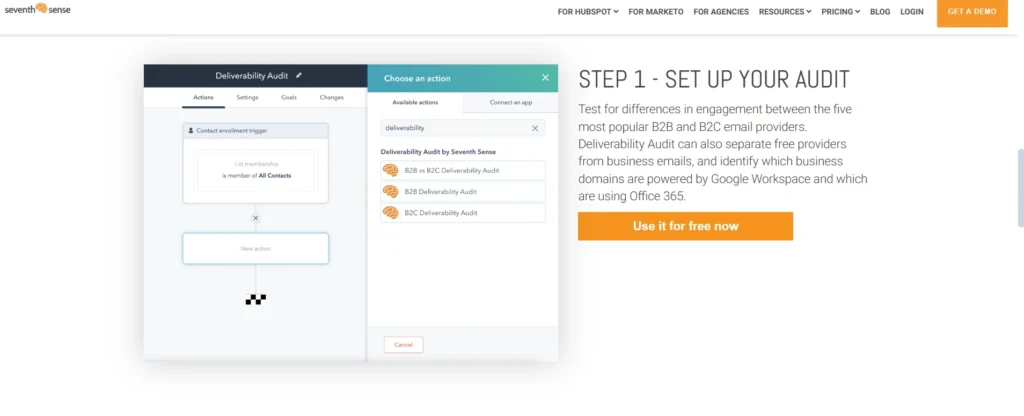
Why It’s Great: Sends your emails when your audience is most likely to engage backed by real-time AI data.
13. Adzooma
- Type: Freemium
- Use Case: Paid ads management
- Key Features:
- Google, Facebook & Microsoft Ads AI
- Performance auditing
- Pros: Simplifies PPC optimization
- Cons: Advanced insights limited to paid
- Pricing: Free; Paid plans available
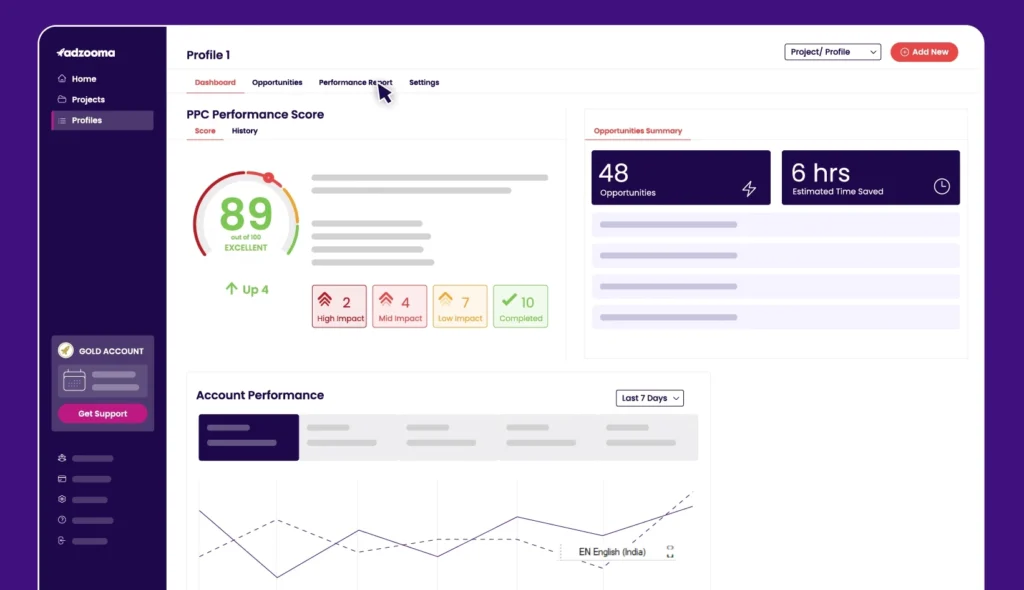
Why It’s Great: Makes ad campaigns more efficient with AI-powered suggestions—ideal for budget-conscious marketers.
Comparison Table: AI Marketing Tools for Small Businesses (2026)
| Tool Name | Function | Pricing Model | Ideal For |
|---|---|---|---|
| Jasper AI | Content creation | Paid (Free trial) | Startups, Agencies |
| Copy.ai | Content + Social Media | Freemium | Freelancers, Small Teams |
| Surfer SEO | SEO optimization | Paid | SEO Experts, Content Teams |
| Pictory | Video marketing | Freemium | Creators, Coaches, SMBs |
| Grammarly Business | Writing assistant | Paid | Remote Teams, Corporates |
| HubSpot Marketing Hub | Automation + CRM | Freemium | Growing SMBs, Mid-sized Firms |
| Ocoya | Social Media + AI Design | Paid | E-commerce, Creators |
| MarketMuse | Content strategy & SEO | Paid | Agencies, Large Content Teams |
| Lumen5 | Video content repurposing | Freemium | Solo Marketers, Brands |
| Flick AI | Social Media Automation | Freemium | Influencers, Solopreneurs |
| ManyChat | Chatbot marketing | Freemium | Retail, DTC, Service Providers |
| Seventh Sense | Email marketing | Paid | HubSpot/Marketo Users |
| Adzooma | Ads management | Freemium | Digital Marketers, Ad Agencies |
Read Also- Top 10 Free AI Tools for Small Businesses Should be know in 2025
How to Choose the Right AI Marketing Tool for Your Business
When exploring the best AI marketing tools, it is easy to get overwhelmed. With so many options, each claiming to offer powerful automation and results, it’s crucial to focus on what actually aligns with your small business goals. Here’s a clear, human-friendly guide to help you choose wisely in 2026
1. Define your business goals
Firstly, identify the problem you want AI to address.
- Need help writing content? Tools like Jasper or Copy.ai may come in handy.
- Want to automate emails or CRM? Consider HubSpot or Brevo.
Believe your goals (e.g., more customer acquisition, better engagement, time savings), not just buzz or hype.
2. Budget and Scalability Considerations
Most AI tools for digital marketing offer tiered pricing models. Start with a free or basic plan, then scale as your business grows.
Look for platforms that do not charge extra for core features or limit automation after the trial.
3. Free Trial Options & Support
Always opt for tools that offer:
- A free trial (7–30 days is standard)
- Access to customer support (chat/email) during your trial
This gives you hands-on insight into usability, feature set, and whether it is worth the investment.
4. Tools with Multi-functional AI Capabilities
In 2026, AI tools are becoming more all-in-one. Choose platforms that combine features like:
- Content generation
- Email marketing
- Social media scheduling
- SEO optimization
This reduces the need for multiple tools and keeps your strategy more efficient and affordable.
According to a 2025 Statista report on AI in marketing, 72% of small businesses now prefer marketing tools with integrated AI functions over standalone features—highlighting a shift towards all-in-one efficiency.
By staying focused on your goals, trying before you buy, and selecting scalable, multi-feature tools, you will not only save costs but also streamline your marketing automation with AI effectively.
Read Also- Ultimate Guide for AI Tools for Small Businesses in 2025
Future of AI in Small Business Marketing
AI is changing rapidly, and it is here to stay. For small businesses, using AI is no longer just about getting ahead. It is about moving forward.
So, what is next? And how can you make sure your business is ready?
Key Trends to Know in 2026
Generative AI is getting even smarter
You have probably heard of tools like Jasper or ChatGPT. These platforms help create content in minutes – blog posts, ads, emails, and more, and they are getting even better.
Smart personalization with AI
Marketing is no longer a one-size-fits-all experience. AI tools like HubSpot or ActiveCampaign can now study customer behavior and send the right message at the right time. This kind of “predictive personalization” helps improve email open rates and sales.
Chatbots that actually help
Remember when chatbots seemed robotic and frustrating? That is changing. Tools like ManyChat and Drift provide AI-powered conversations that feel more human. These bots can answer questions, book appointments, and even make sales — 24/7.
How Your Small Business Can Stay Ahead
1. Keep learning
Continuous learning is key in the AI field. The technology changes so fast every few months, not years. Resources like Google Digital Garage, Coursera, and HubSpot Academy offer free training to help you stay ahead of the curve.
2. Audit your tools regularly
Just because a tool worked last year does not mean it is the best option now. Check back every quarter to see if there are any newer, better, or cheaper options available.
3. Test and optimize
A/B testing in AI tools can help you improve everything from email subject lines to landing pages. The more you test, the more your AI will learn and the better the results will be.
Conclusion
In today’s rapidly evolving digital world, small businesses can no longer ignore the power of AI. From automating content creation and email marketing to enhancing customer insights and campaign performance, the best AI marketing tools in 2026 are helping brands do more with less. Whether you are just starting out or scaling your marketing efforts, there is an AI tool on this list, free or paid, to match your needs and budget.
Now is the perfect time to integrate AI into your marketing strategy. Explore these tools, test which one works best for your business, and stay ahead of the competition.
Ready to grow smarter?
Start integrating AI into your marketing strategy today and see the results for yourself.
FAQs
1. What are the best AI marketing tools for small businesses in 2026?
Ans. Some of the top AI marketing tools in 2026 include Jasper AI for content creation, Copy.ai for ad copy, Surfer SEO for on-page optimization, HubSpot for marketing automation, and Pictory for video marketing. These tools cater to various needs, from content generation to analytics and automation.
2. Are there any free AI marketing tools available for small businesses?
Ans. Yes, tools like Canva’s AI features, Google’s Gemini, and Mailchimp (free tier) offer AI-powered capabilities at no cost. Many premium tools also offer free trials or freemium versions ideal for startups and small businesses.
3. How can AI tools help improve my digital marketing strategy?
Ans. AI tools can streamline content creation, automate repetitive tasks, personalize customer interactions, analyze performance data, and even predict marketing trends—saving time and boosting ROI for small businesses.
4. Is it necessary to have technical knowledge to use AI marketing tools?
Ans. No, most modern AI marketing platforms are designed with user-friendly interfaces and minimal learning curves. They typically offer tutorials, templates, and support to help non-technical users make the most of their features.
5. How do I choose the right AI marketing tool for my business?
Ans. Start by identifying your marketing goals content creation, automation, lead generation, or SEO. Then evaluate tools based on features, pricing, ease of use, and scalability. Always try free versions or demos before committing.

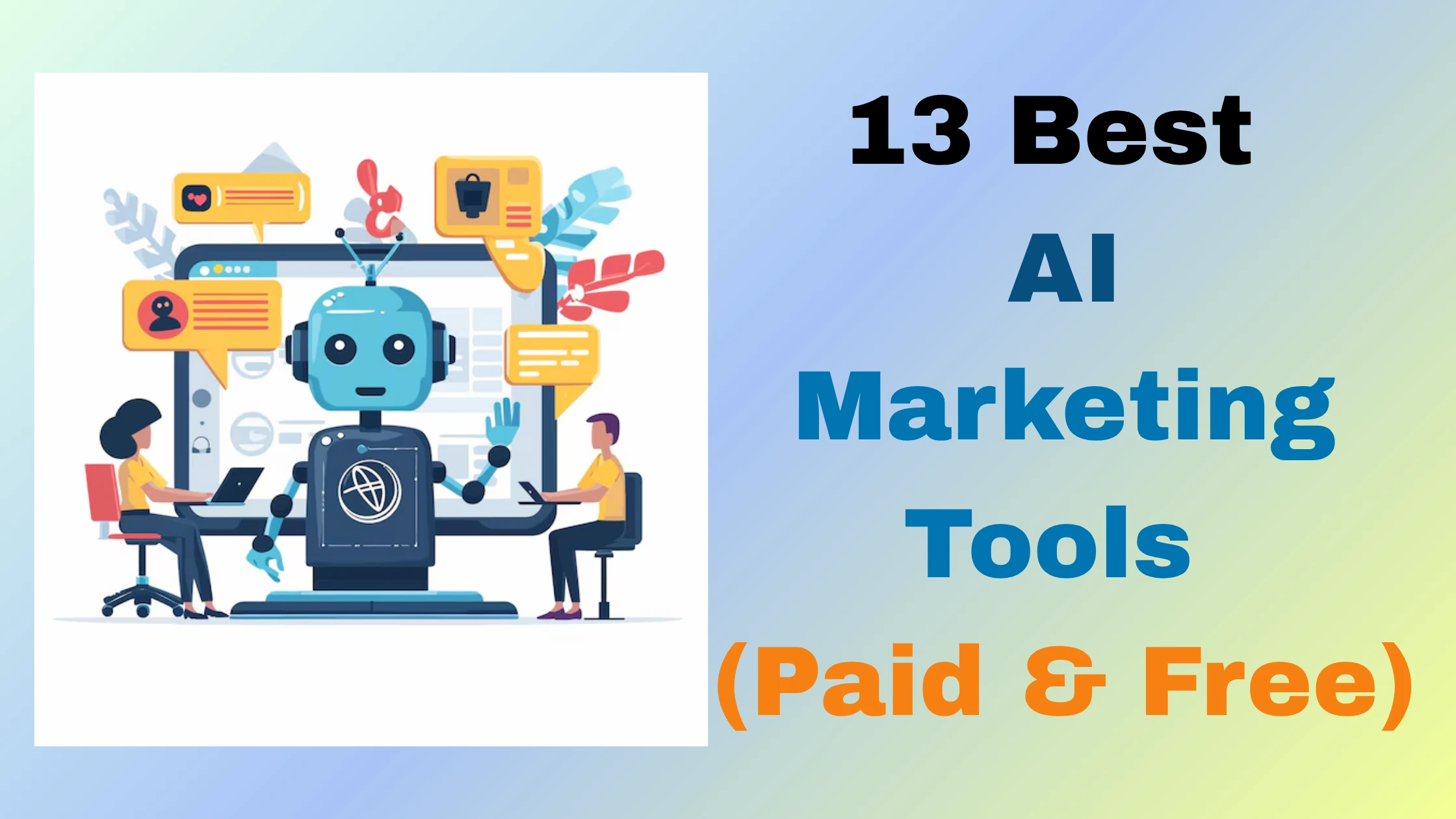
4 thoughts on “13 Best AI Marketing Tools Every Small Business Should Use in 2026 (Paid & Free)”